“Once in a Lifetime” Whale Shark Sighting Just Happened Off the Coast of San Diego. Here’s What it Looked Like.
Whale sharks are the largest fish in the ocean.
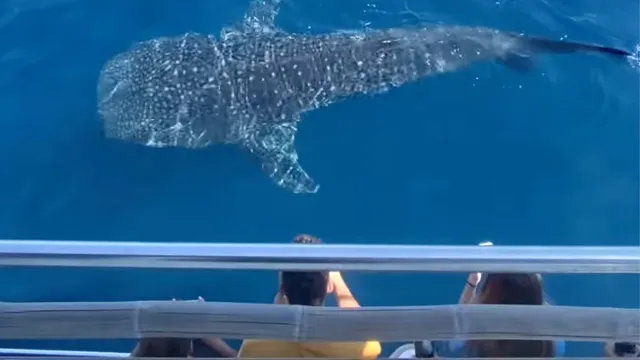
On Labor Day, a whale-watching tour off the coast of San Diego was interrupted by what its captain called a “once-in-a-lifetime” sighting: A massive whale shark. Captains Bryan McGrory and Ryan Jones were steering the ship Privateer for San Diego Whale Watch when the sensational find occurred. Read on to find out how it all went down, why the experienced sailors got so excited, and why whale sharks are so rare.
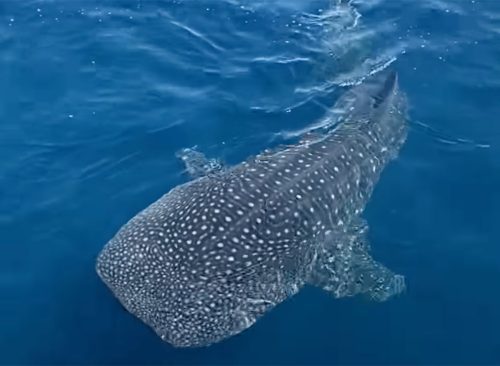
The sighting happened on Labor Day, during a tour with 149 people aboard. The group was looking at a blue whale, thinking that would be the best part of the trip. Moments later, McGrory noticed a “big mass in the water.” “We didn’t know what it was at the time. We were thinking minke whale, basking shark, and then we saw all the spots of the whale shark,” McGrory told NBC 7 San Diego “[This is] extremely rare,” he said. “I’m thinking it’s a once-in-a-lifetime encounter.” Keep reading to learn more and see the video.

McGrory estimated the whale shark was about 25 feet long. “I’m out here too excited. I can’t contain my screams,” he told CBS 8. Co-captain and naturalist Ryan Jones was trying to identify some dolphins through binoculars when he spotted something unusual near the ship’s bow. “In a split second we thought [it was] a minki whale, basking shark, whale shark, and we just lost it after that,” said Jones. “I had goosebumps. I’ve never seen one.” The captains say they’ve also seen more blue whales than usual in the area recently, along with rare tropical birds. “When I’m on the mic as a naturalist, I always say you never know what you are going to see, and then Monday proved it,” said Jones.
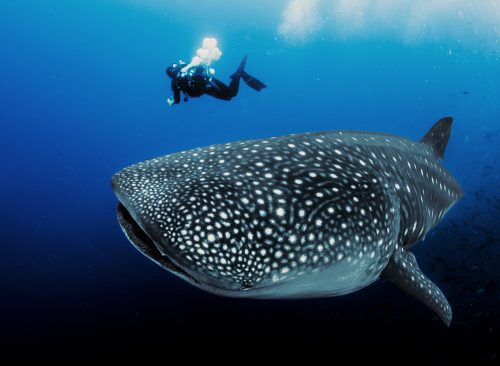
Whale sharks can grow to 40 feet long, so it’s likely this shark was an adolescent. According to National Geographic, whale sharks are the largest fish in the ocean. They are found in all tropical seas but prefer warmer waters. Despite their savage name, they’re rather docile creatures: Their diet consists of small fish and sea creatures called plankton, and they’re so unbothered by humans they’ve been known to give one a piggyback ride occasionally.
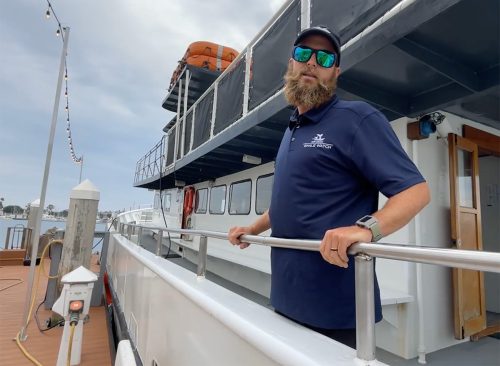
Even an experienced sailor like McGrory—who has been steering ships for the whale watching company for four years—was surprised by the sighting. It’s the first time he’s seen a whale shark in local waters. “I never leave the harbor thinking I’m going to see a whale shark, but that’s the beauty of the ocean,” McGrory told NBC 7. “Typically, these sightings are during El Niño or similar events. We’re currently in a La Niña pattern, which is typically cooler ocean temperature but this year we’ve seen the waters warm up similar to what we see during El Niño years.”
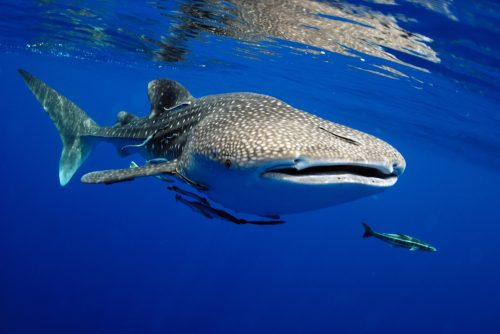
Whale sharks are even more rarely sighted than they used to be. Their population has fallen 50 percent in the last 75 years. The culprits are decades of habitat loss because of pollution and coastal overdevelopment, along with hunting—the whale shark’s meat and oil are considered valuable. It is considered an endangered species.














